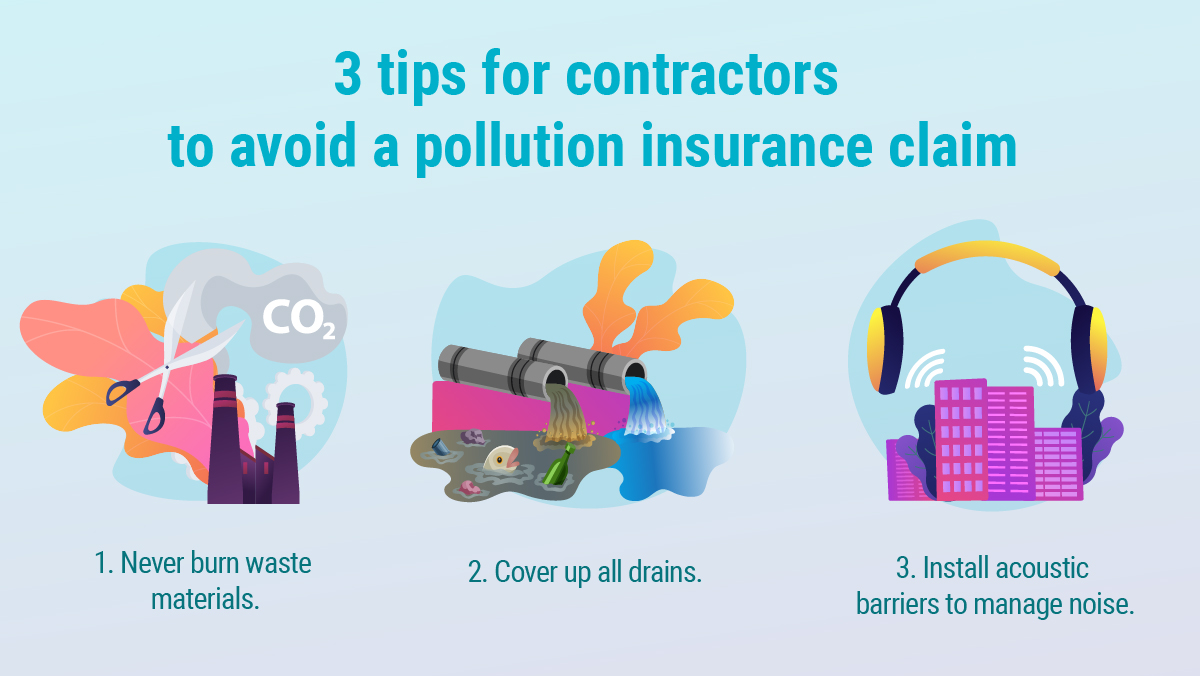Contractor Pollution Liability Insurance: Do You Need It?
We have all heard the stories of individual contractors, mid-sized businesses, and large corporations getting in trouble for environmental damage. As a result, these stories hurt the names of well-known industry leaders or shut down operations of smaller competitors.
Pollution liability used to be part of commercial general liability (CGL) policies. Although, today, these policies stand alone. Contractors who are unaware of this suffer from expensive lawsuits and damage repairs.
Because of the increasing importance of environmental protection and the fact that contractor pollution liability (CPL) coverage is no longer part of general liability policies, the market for CPL coverage is growing. But why do you need contractor pollution liability insurance?
Definition of Contractor Pollution Liability Coverage
Contractor pollution liability coverage is a policy bought by contractors that protects against lawsuits and damages from environmental threats or pollutants as a result of their projects. Here are some things covered in these policies:
- Third-party injury
- Property damage
- Defenses
- Clean-up costs
CPL policies also cover contractors from accidents caused by third parties.
In order to better understand what a CPL policy covers; it is important to know what a pollutant is.
What is a Pollutant?
According to the International Risk Management Institute (IRMI), a pollutant is “an irritant or contaminant, whether in solid, liquid, or gaseous form, including – when they can be regarded as an irritant or contaminant – smoke, vapor, soot, fumes, alkalis, chemicals, and waste.”
A pollutant does not have to be harmful to the environment. Pollutants are something foreign to the environment and cause irritation.

Because of the broad definition of what a pollutant is, contractors need to make sure they have CPL coverage for the duration of all their projects.
What Options Do I Have for Contractor Pollution Liability Policies?
Citizens General explains “pollution liability coverage can be offered on a project basis or as a blanket program.” It is also important to understand the difference between these options. Let us take a brief look at each one.
- Project Basis: These policies supply coverage for pollutants and accidents that harm the environment during the project period. These policies can include tail coverage.
- Blanket Coverage: This coverage supplies insurance for everything defined in the policy during the active dates.
There is no obvious answer to which type of policy is best. As a matter of fact, this is something each contractor must decide on their own.
Understanding Risks & When You Need Contractor Pollution Liability Coverage
For the most part, if you find yourself in situations where you are using dangerous materials on project sites, you need contractor pollution liability coverage. For contractors who do not already have CPL coverage in place, remember general liability insurance policies do not ensure this type of coverage.
If you are a contractor and you are unsure of whether the third parties you are working with have coverage, contact us to learn more about how SmartCompliance will help.


